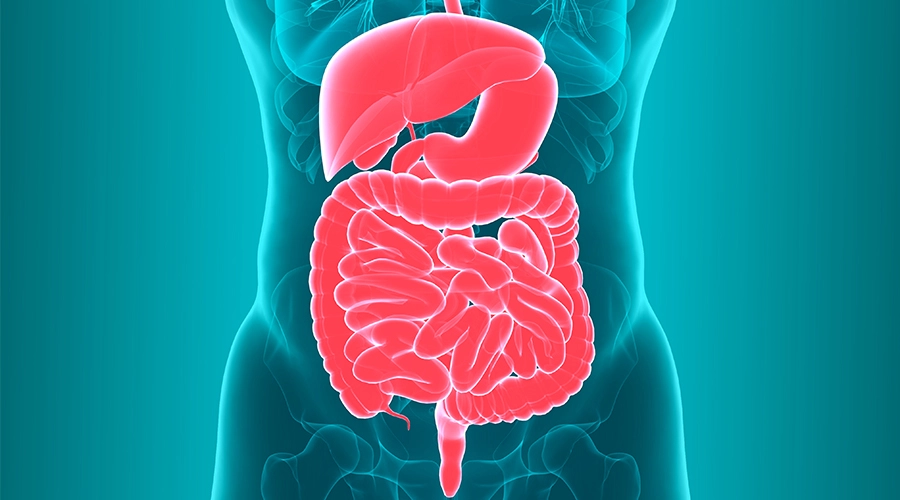Gut health” describes the function and balance of bacteria in the various parts of the alimentary canal. Ideally, organs like the esophagus, stomach, and intestines all work together to permit us to eat and digest food without discomfort.
Why should we concentrate on our gut health?
All food is ultimately broken within the gut to an easy form that will enter the bloodstream and be delivered as nutrients throughout our bodies. This is often only possible with a healthy gastrointestinal system. A healthy gut contains healthy bacteria and immune cells that keep off infectious agents like bacteria, viruses, and fungi. A healthy gut also communicates with the brain through nerves and hormones This further helps maintain general health and well-being.
What are the signs of gut health problems?
Our experienced Gastroenterologist explains the sign of gut health problems
Everyone at some point experiences digestive problems like abdominal pain, bloating, loose stools, constipation, heartburn, nausea, or vomiting. When symptoms persist, it’s going to be a symbol of an underlying problem that needs medical attention. Weight loss without an honest reason, blood within the stool, black stool (a sign of bleeding within the gut), severe vomiting, fever, severe stomach aches, trouble swallowing food, pain within the throat or chest when food is swallowed, or jaundice could potentially indicate an underlying gastrointestinal problem with serious consequences.

Top 10 Foods to Improve Gut Health
Many factors, including the foods you eat, can impact the sort of bacteria found in your alimentary canal. Therefore, during this article, we’ll mention top foods that are good for your gut health.
Ginger
Ginger has been traditionally used as a digestive aid for hundreds of years. It’s a digestive tonic, which may be helpful for indigestion, believed to figure by relieving spasms within the alimentary canal, reducing inflammation, and forming a physical barrier against irritants. It also has anti-nausea properties and has been shown to reinforce the natural movements of the intestines that aid digestion.
Asparagus
Asparagus may be a good source of prebiotics to feed the beneficial bacteria within the gut. Prebiotics are carbohydrates or fibers that reach the colon relatively unchanged because the body cannot digest them. Here they feed the friendly bacteria, encouraging them to grow and thrive and their numbers therefore increase and outnumber the bad stuff. Specifically, these sorts of prebiotics are shown in studies to extend a beneficial bacterial strain called bifidobacteria. Other good prebiotic food types are bananas, onions, chicory, artichokes, garlic, and leeks.
Turmeric
Turmeric has been shown in one study to alleviate indigestion. Turmeric has documented anti-inflammatory effects and protects the gut against problems involving inflammation, like inflammation of the esophagus caused by reflux. There’s also preliminary evidence it could help people with inflammatory bowel disease.
Kiwi Fruit
Kiwi Fruit contains a natural fruit enzyme called actinidin that helps the body digest proteins and may therefore act as a digestive aid. One study found that eating three gold kiwi per day relieves constipation, abdominal discomfort, and indigestion. Another demonstrated improvements in IBS symptoms. Kiwi has also been shown to favorably alter the composition of intestinal bacteria and kiwi fiber has the power to retain water, which is useful for bowel movements.
Broccoli
Broccoli and vegetables generally are another top source of dietary fiber and will be eaten in plentiful amounts for optimum digestive health. Regular consumption of broccoli has been shown in studies to favorably alter the composition of gut bacteria. Broccoli and other cruciferous vegetables like cabbage, cauliflower, kale, Brussels sprouts, collards contain substances called glucosinolates, natural plant compounds, which the colonic bacteria can metabolize, producing beneficial effects.
Whole Grains
Whole grains are a top source of dietary fiber, which is an important element for a healthy gut. Western diets are typically low in fiber and most people would enjoy increasing their intake. Swapping refined grains like light bread, polished rice, etc for whole grains may be a good way to extend your fiber intake. A high-fiber diet benefits digestion helps prevent constipation, reduces the danger of many diseases, and favorably influences the balance of gut bacteria.
Papaya & Pineapple
Papaya & Pineapple contain natural fruit enzymes, which may help the body digest fats and proteins respectively. These enzymes may help relieve mild digestive symptoms like gas and bloating and may have a mild laxative effect. These fruits generally are another top source of dietary fiber to assist keep the gastrointestinal system healthy. Fruit is simpler to digest if eaten between meals on an empty stomach or before meals, instead of at the top of a meal.
Flax Seeds
Flaxseeds (Linseeds) have gentle laxative effects and may help relieve constipation. they’re a ‘bulk forming’ laxative; natural laxatives from plants with a high fiber and mucilage content that expand when combined with water. This increase in volume within the bowel stimulates a reflex contraction and movement. One tablespoon of either whole or ground seeds dissolved during a full glass of water once or twice each day is the recommended amount. There’s also some evidence that flaxseed may have favorable effects on the microbiome.
Peppermint Tea
Peppermint Tea both peppermint leaf and flavorer has an extended history of use for digestive disorders. Studies have found that peppermint can reduce symptoms of indigestion like gas and stomach cramps. It seems to figure by relaxing the muscles of the gut and helping gas to dissipate. flavorer has also been shown in studies to scale back symptoms of IBS. Tea made up of freshly ground leaves is far better than a teabag.
Water
Water is important for keeping things moving through the gut. many glasses of water together with fiber reduce transit time (time taken for food to undergo the digestive tract). Shorter transit times end in less harmful by-products being produced within the gastrointestinal system and a healthier gut environment. The longer food takes to undergo the colon on the opposite hand, the more harmful bacterial break-down products are often produced and this increases the danger of digestive and other health problems.
Final Thoughts
Limit consumption of added sugar, refined carbohydrates, processed foods, and meat, which may all encourage the expansion of harmful bacteria. Manage stress, as prolonged stress hampers digestion and may alter the balance of gut bacteria. Take positive steps to manage stress, like meditation, yoga, or walking in nature. Physical activity reduces ‘transit time’, which is the time taken for food to undergo the alimentary canal, keeping the gut healthy and helping prevent constipation. Eating too fast reduces the effectiveness of your digestion, which starts within the mouth with enzymes present within the saliva and therefore the physical breakdown of food by chewing. Avoid probiotic shots, drinks, and flavored yogurts, as these are generally high in added sugars and sometimes contain artificial flavorings and sweeteners. Instead, choose the natural probiotic foods listed above.






